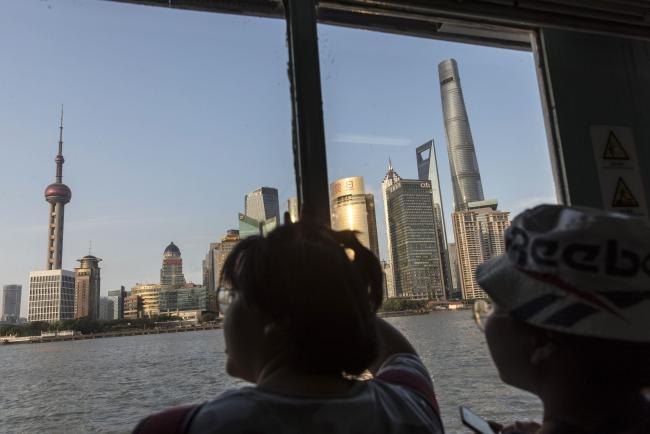(Bloomberg) -- Moody’s Corp. may have to shelve a plan to take control of China Chengxin International Credit Rating Co., the nation’s largest ratings company, amid regulatory inaction, according to people with knowledge of the matter.
Moody’s, seeking to take advantage of China’s policy of opening its financial sector to global firms, reached a framework agreement to increase its holding in Chengxin to more than 50%, from 30%, Bloomberg reported in March. The U.S. business had also approached the People’s Bank of China for feedback on its plan.
The effort has been held up mainly because Moody’s failed to get regulatory clearance, the people said, asking not to be identified because the matter is private. Trade tensions between the U.S. and China have also been a hurdle, they said.
China has over the past two years embarked on an unprecedented policy of leveling the playing field for international finance. But despite rule changes, including allowing majority stakes in domestic joint ventures, foreign entities say they still face hidden barriers as they try to gain increased access to the $43 trillion industry -- not least, slow regulatory approval.
A Moody’s representative declined to comment, and Chengxin didn’t respond to calls seeking comment. The PBOC didn’t respond to a faxed request for comment. Chengxin’s leadership has in the past expressed unwillingness to give up control to Moody’s.
Authorities last year began allowing offshore firms to take majority stakes in securities ventures. In the insurance, payments and credit-rating sectors, a few companies received approval for control of onshore units. Foreign participation remains a small fraction of overall business in the industry.
Overseas firms seeking approvals for increased stakes in local ventures under the new rules have had to wait for months. New York-based JPMorgan Chase (NYSE:JPM) & Co. and Nomura Holdings Inc., based in Tokyo, waited more than 10 months after submitting applications for majority control of local securities ventures before getting the green light. Switzerland’s UBS Group AG had a nearly seven-month wait.
S&P Approval
S&P Global Inc. in January became the first foreign ratings company allowed to set up its own local unit to rate domestic Chinese bonds. Moody’s application for a wholly owned unit, meanwhile, wasn’t approved, said one of the people with knowledge of the matter.
Under the original Moody’s and Chengxin agreement from 2006, Moody’s has the option to raise its stake to 51% if Chinese regulators allow it. China opened the door for overseas ratings firms in 2017 as a way to speed up reform and foster competition in the domestic bond market.
China and U.S. remain far apart in their stances on the trade war, even after the two sides reached a handshake accord last week. U.S. President Donald Trump said on Friday that China would significantly step up commodity purchases and make concessions related to financial services as part of the deal, with the U.S. delaying a tariff increase that was due this week while the deal is finalized.
China’s securities regulator last week set a timetable for foreign financial firms to have full control of local ventures, and the cabinet on Tuesday published revised rules easing requirements for overseas banks and insurers operating in the country. In July, regulators said they’ll allow overseas credit-rating companies to rate bonds listed in China.
Beijing-based Chengxin, established in 1992, was the first jointly owned credit-rating company approved by the central bank. It has since become China’s largest in domestic market share, and is ranked No. 4 in the world, according to its website.
The Chengxin stake held by Moody’s was diluted in 2017 to 30%, from 49%, following a restructuring. At the time, Moody’s said its investment in the company hadn’t been reduced and denied that the move was in preparation for an independent onshore rating business.
